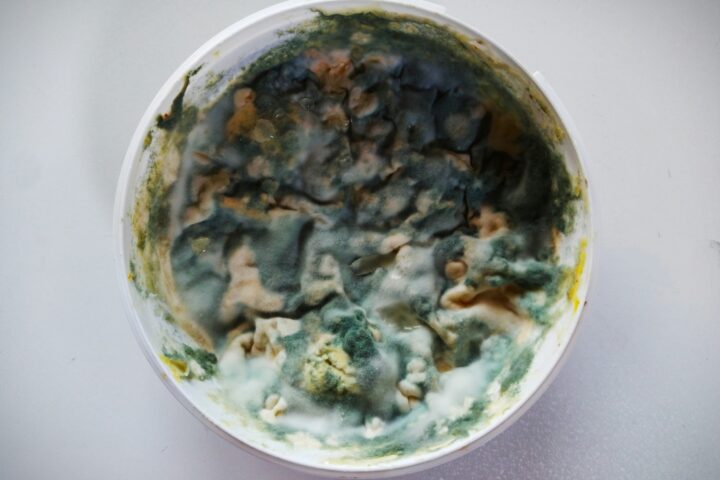Agriculture needs new technologies
The authorities seem to have recognized the need to make better technologies available to farmers, so that they can cope effectively with climate change and the increase in extreme events. Switzerland should not miss the opportunity to play an important role in this field and make a valuable contribution to food security.
Monday, December 6, 2021
This guest commentary by Erik Fyrwald, CEO Syngenta Group, was first published in Le Temps on 25 August.
Climate change, geopolitical conflicts, rising energy and fertilizer prices are putting farmers around the world under pressure. They need to increase production and efficiency to guarantee food security while reducing their impact on the environment. According to the United Nations, over 800 million people already no longer have access to healthy, affordable food, and the number of people severely impacted by food insecurity has doubled since 2020 to 345 million. At the same time, climate change is causing average temperatures to rise steadily. Droughts and other extreme phenomena are becoming even more frequent, allowing pests and diseases to establish themselves in new regions.
Farmers are doing their best to achieve good harvests despite these difficult circumstances, but calls for the use of better, innovative science-based agricultural technologies are multiplying. Among the most promising is genome editing, led by the CRISPR-Cas method, introduced in 2012 and known as «genetic scissors».
This Nobel Prize-winning technology has long been sidelined. But things are changing: last July, the European Commission announced a revision of its regulations on New Breeding Techniques (NTS) in agriculture. In Switzerland, parliament has instructed the Federal Council to present, by mid-2024 at the latest, draft legislation for risk-based authorization regulations for NTS-derived plants in which no transgenic genetic material has been inserted.
Many farmers agree that access to new technologies is necessary to meet growing challenges. Improved plant varieties deliver higher yields, greater resistance to extreme weather and pests, and healthier soils. They also improve the taste of food and extend shelf life, to the benefit of consumers.
The NTS regulation proposed by the European Commission confirms that genome editing has the potential to deliver these improvements. In the meantime, breeders are producing crops with longer roots that allow sufficient hydration even in prolonged drought, and that help resist violent storms or floods. New hybrid wheat varieties, made more tolerant to extreme climatic stress, have been shown to yield up to 10% more under comparable conditions. In theory, these achievements could also be developed by traditional breeding over a longer period, but NTS enable them to be developed in just a few years. They are an essential resource if we are to achieve our objectives now.
Some fear that companies and research institutes will systematically patent their inventions. In reality, the situation is similar to that of traditional breeding: neither Switzerland nor the EU issues patents on plant varieties. Nor can a plant's properties be patented if they are the result of traditional breeding methods. The cultivation of old varieties using traditional methods is simply not concerned. Only the use of the latest inventions for commercial purposes is subject to licensing.
The new directives proposed by the European Commission to regulate NTS represent a welcome turning point in the political discussions to date. I hope that the Federal Council's proposal will be in line with this development - even though Syngenta no longer carries out breeding activities in Switzerland. As a research and production company, we have a vested interest in ensuring that the environment is conducive to technology, and that Switzerland regains its leading position in a field as important as biotechnology.
Authorization rules for genetically modified crops are being relaxed in a growing number of countries. Research activities are increasing, offering market opportunities and amounting to a growing «democratization» of plant breeding. The authorities seem to have recognized the need to make better technologies available to farmers, so that they can cope effectively with climate change and the increase in extreme events. Switzerland should not miss the opportunity to play an important role in this field and make a valuable contribution to food security.
Kindly note:
We, a non-native editorial team value clear and faultless communication. At times we have to prioritize speed over perfection, utilizing tools, that are still learning.
We are deepL sorry for any observed stylistic or spelling errors.
Related articles

Pesticides in Green Smoothies
After countless recipes for Christmas cookies, festive roasts and cocktails, the advice on losing weight, detoxing and beautifying oneself now takes centre stage. Most of it is sheer nonsense.

Natural Toxins: An Underestimated Risk in Our Food
Safe food cannot be taken for granted. While chemical substances are often the focus of public criticism, reality shows that the greatest risks to food safety are of natural origin. Recent recalls of infant food products illustrate how insidious bacterial toxins or moulds can be.

Herbal Teas: Making You Sick Instead of Slim
Plant protection products are frequently the focus of public criticism. Far less attention is paid to the fact that natural ingredients in teas and dietary supplements are also biologically active and can pose health risks.

Why Strict GMO Regulation Stifles Innovation
New breeding techniques such as CRISPR-Cas are considered key to developing resilient crops, stable yields and reducing the need for plant protection products. ETH professor Bruno Studer warns that overregulating these technologies strengthens precisely those large agricultural corporations that critics seek to curb, while excluding smaller breeders and start-ups from the market.

